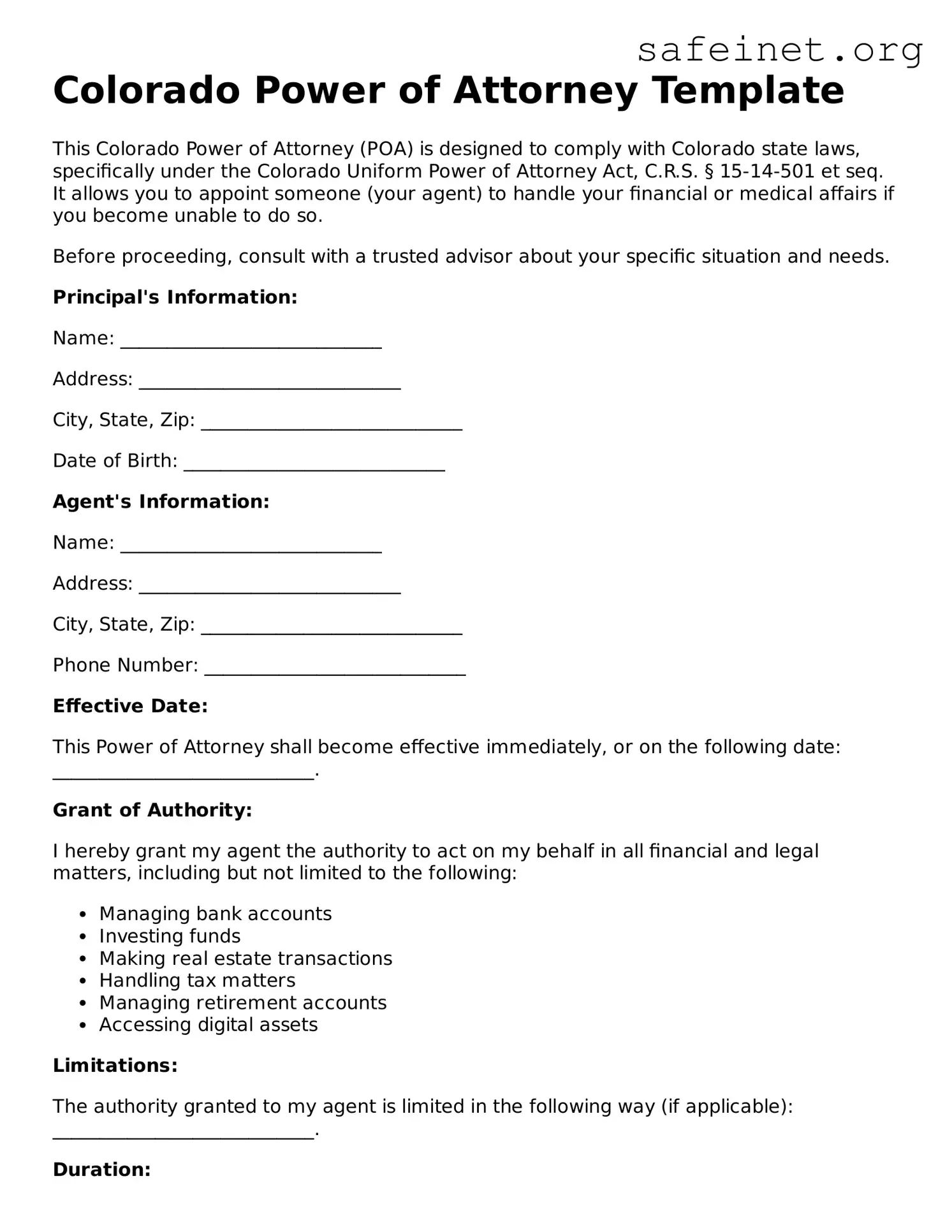Colorado Power of Attorney Template
This Colorado Power of Attorney (POA) is designed to comply with Colorado state laws, specifically under the Colorado Uniform Power of Attorney Act, C.R.S. § 15-14-501 et seq. It allows you to appoint someone (your agent) to handle your financial or medical affairs if you become unable to do so.
Before proceeding, consult with a trusted advisor about your specific situation and needs.
Principal's Information:
Name: ____________________________
Address: ____________________________
City, State, Zip: ____________________________
Date of Birth: ____________________________
Agent's Information:
Name: ____________________________
Address: ____________________________
City, State, Zip: ____________________________
Phone Number: ____________________________
Effective Date:
This Power of Attorney shall become effective immediately, or on the following date: ____________________________.
Grant of Authority:
I hereby grant my agent the authority to act on my behalf in all financial and legal matters, including but not limited to the following:
- Managing bank accounts
- Investing funds
- Making real estate transactions
- Handling tax matters
- Managing retirement accounts
- Accessing digital assets
Limitations:
The authority granted to my agent is limited in the following way (if applicable): ____________________________.
Duration:
This Power of Attorney shall remain in effect until revoked by me in writing or until my death.
Signatures:
Principal’s Signature: ____________________________
Date: ____________________________
Witnesses:
This document must be signed in the presence of two witnesses:
- Witness 1: ____________________________ (Signature) Date: _________________
- Witness 2: ____________________________ (Signature) Date: _________________
Notary Public:
State of Colorado
County of ____________________________
Subscribed and sworn before me on this ___ day of __________, 20__.
Notary Public: ____________________________
My Commission Expires: ____________________
Notice:
This Power of Attorney is durable, meaning it remains effective even if you become incapacitated unless otherwise revoked.
